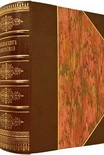The Twelve Lives of Alfred Hitchcock by Edward White (an ebook reader txt) 📗

- Author: Edward White
Book online «The Twelve Lives of Alfred Hitchcock by Edward White (an ebook reader txt) 📗». Author Edward White
Naturally, the Hitchcock connection was the source of much publicity. In October 1944, Hitchcock joined Alma at a performance of the play in Boston, immediately before he went to work on his war propaganda films in England, where he experienced the nerve-shredding tail end of the Blitz. As usual, reporters couldn’t resist remarking on what an unusual-looking couple Pat’s parents were, Alma being much shorter than her husband and not even half his weight. Of Pat’s acting ambitions, Hitchcock said, apparently playfully, that although he did not approve, “her mother does thoroughly. . . . I’ll put off as long as possible having to direct my own daughter”—a clear indication that he knew it was only a matter of time.
Alfred, Alma, and Pat out for a walk with their dogs, Edward IX and Mr. Jenkins. Beverly Hills, 1939.
The occasion came in 1949 when he cast Pat in the role of the absurdly named Chubby Bannister—one of Hitchcock’s teasing little jokes—in the movie Stage Fright, again written by Whitfield Cook. The script was based on the novel Man Running by Selwyn Jepson, but it was Alma who suggested making the protagonist a student at RADA, the august acting school in London at which Pat studied. To develop the treatment and write the screenplay, Hitchcock recruited Cook to collaborate with Alma and him. Since their first association in Violet, the Hitchcock family and Cook had grown increasingly close. From 1945 on, he was a frequent guest for dinner or cocktails, and would often meet one or more of them for nights out at restaurants and the theater. In 1948, Cook and his mother even spent Christmas at the Hitchcocks’ home, returning the favor the following week by hosting the family at his New Year’s Eve party. It was clear that a strong bond formed among all of them, and Hitchcock rated Cook as a writer; prior to engaging him to work on what would become Stage Fright, there was talk of collaborating on a vehicle for Shirley Temple. A short story that Cook wrote, “Happy Ending,” includes a tableau about a man with a “late-Victorian sense of humor,” his wife and their daughter, which, although not modeled on the Hitchcocks, is remarkably similar to many people’s descriptions of the family at the dinner table:
Every evening he’d bring home some joke or story or problem to be brought forth with the dessert. Sometimes the stories were vulgar. Risqué, Mrs. Prann called them. “Percy,” she’d say, “don’t be risqué. Remember Dora.” And Percy, looking coy and drawing his chin down almost inside his high, illfitting collar, would say, “Oho, Dora knows a thing or two; she’s a big girl now.” And Dora would give a sickly smile.
The scene sounds very much like one Arthur Laurents detailed in his memoirs, in which Hitchcock handed Laurents a cocktail that Hitchcock said was “gin and menstrual blood.” Alma responded, “Oh, Hitch!” Pat exclaimed, “Oh, Daddy!” “Both giggled indulgently and he was beamish.” At times, though, Hitchcock’s schoolboy jokes, heavy drinking, and showing off, especially in front of women half his age, could embarrass Alma and test her patience. Several acquaintances witnessed her sending withering looks and sharp words in his direction.
Cook may have become more than a family friend. In the fall of 1948, Alma returned to Los Angeles from England, where Hitchcock was filming Under Capricorn, and embarked on what appears to have been an affair with Cook, one that may have lasted just a few weeks in Hitchcock’s absence, or possibly carried on for many months. When Patrick McGilligan first mooted this possibility in 2003, it was met with bafflement from previous Hitchcock biographers, who had never found any sense that Alma was much different from the ever-dutiful companion to the great genius that she presented to the press. But Cook’s diaries support McGilligan’s suggestion of something more than close friendship.
Cook, at this point a single man, appears to have had a very active romantic and sexual life, and he logged his encounters with Alma in an elliptical, lightly coded fashion, similar to the way in which he recorded assignations with other partners: “Unexpected evening!”; “Chez moi later.” One entry, however, seems unambiguous: “Dinner with A at Ready Room. Sex later complicated by overseas call,” perhaps, as McGilligan thought, with Hitchcock on the other end of the line. McGilligan also notes that on the evenings they met in September that year, Cook and Alma steered away from their usual LA nightspots, once driving all the way to Santa Barbara for dinner, suggesting that they were keen not to advertise the time they were spending together.
If this was an affair, it seems to have been one born not of a great shared infatuation but of some emotional unease Alma was experiencing—though exactly what is a mystery. In a diary entry from October 1948, Cook perfunctorily describes an evening out with Alma, ending simply with “Tears later.” It’s possible she had grown despairing of Hitchcock’s current infatuation with Ingrid Bergman, with whom he was working on Under Capricorn. Hitchcock told a select few—mostly writers on his films—that Bergman had once attempted to seduce him, an





Comments (0)